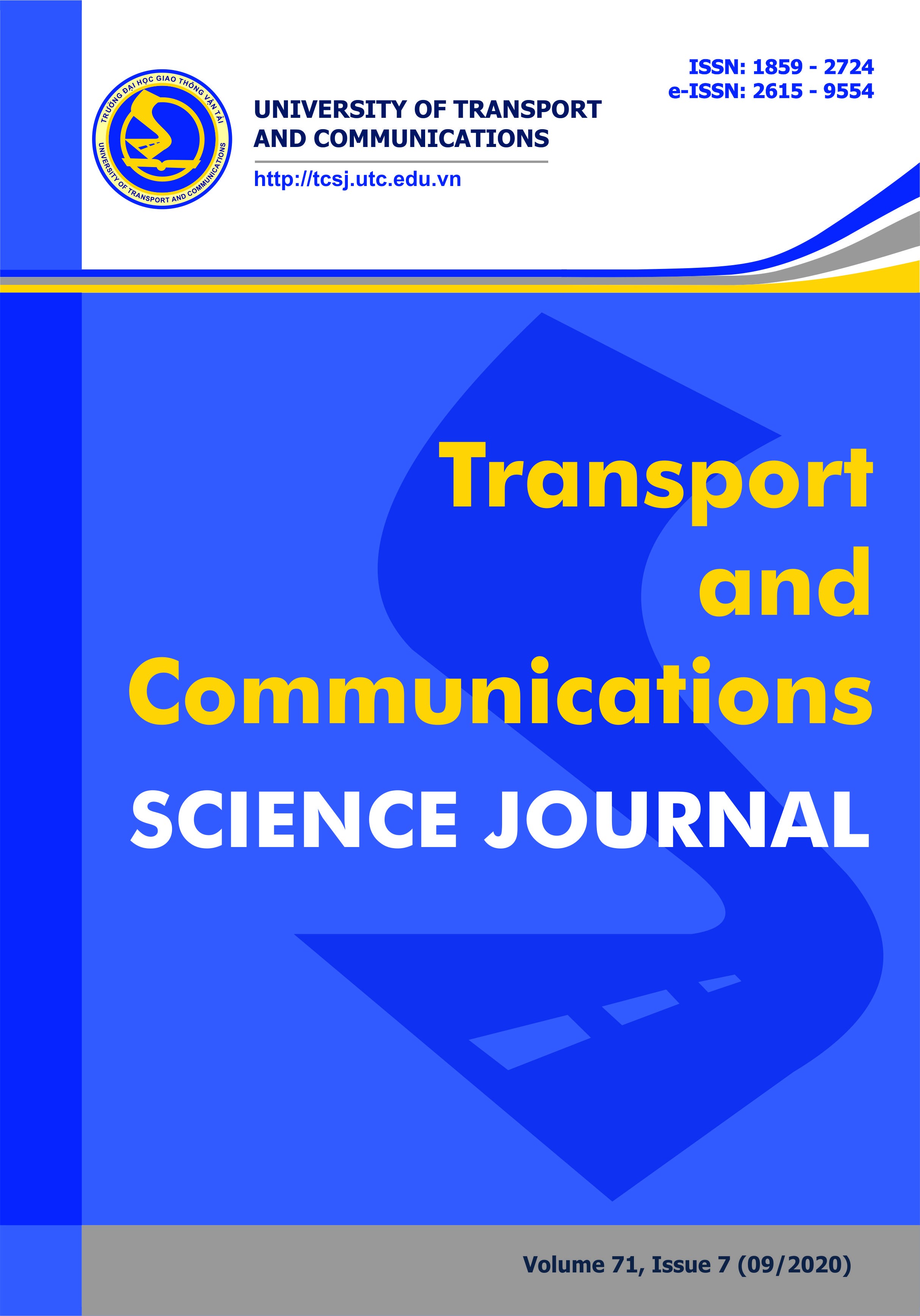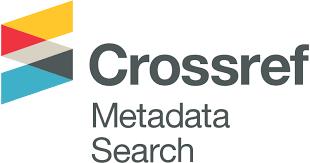Detection and localization of helipad in autonomous UAV landing: a coupled visual-inertial approach with artificial intelligence
Email:
hoangdinhthinh@hcmut.edu.vn
Từ khóa:
artificial intelligence, machine learning, localization, UAV, landing
Tóm tắt
Autonomous landing of rotary wing type unmanned aerial vehicles is a challenging problem and key to autonomous aerial fleet operation. We propose a method for localizing the UAV around the helipad, that is to estimate the relative position of the helipad with respect to the UAV. This data is highly desirable to design controllers that have robust and consistent control characteristics and can find applications in search – rescue operations. AI-based neural network is set up for helipad detection, followed by optimization by the localization algorithm. The performance of this approach is compared against fiducial marker approach, demonstrating good consensus between two estimationsTài liệu tham khảo
[1]. T. Venugopalan, T. Taher, G. Barbastathis, Autonomous landing of an Unmanned Aerial Vehicle on an autonomous marine vehicle, in 2012 Oceans, 2012, pp. 1-9. https://doi.org/10.1109/OCEANS.2012.6404893
[2]. A. B. Junaid, A. Konoiko, Y. Zweiri, M. N. Sahinkaya, L. Seneviratne, Autonomous wireless self-charging for multi-rotor unmanned aerial vehicles, Energies, 10 (2017) 803. https://doi.org/10.3390/en10060803
[3]. J. Kim et al., Autonomous flight system using marker recognition on drone, in 2015 21st Korea-Japan Joint Workshop on Frontiers of Computer Vision (FCV), IEEE, 2015, pp. 1-4. https://doi.org/10.1109/10.1109/FCV.2015.7103712
[4]. R. Bartak, A. Hraško, D. Obdržálek, A controller for autonomous landing of AR. Drone, in The 26th Chinese Control and Decision Conference (2014 CCDC), IEEE, 2014, pp. 329-334. https://doi.org/10.1109/CCDC.2014.6852167
[5]. M. Skoczylas, Vision analysis system for autonomous landing of micro drone, acta mechanica et automatica, 8 (2014) 199-203. https://doi.org/10.2478/ama-2014-0036
[6]. O. Araar, N. Aouf, I. Vitanov, Vision based autonomous landing of multirotor UAV on moving platform, Journal of Intelligent & Robotic Systems, 85 (2017) 369-384. https://doi.org/10.1007/s10846-016-0399-z
[7]. D. K. Kim, T. Chen, Deep neural network for real-time autonomous indoor navigation, arXiv preprint arXiv:1511.04668, 2015. https://arxiv.org/abs/1511.04668
[8]. P. H. Nguyen, M. Arsalan, J. H. Koo, R. A. Naqvi, N. Q. Truong, K. R. Park, LightDenseYOLO: A fast and accurate marker tracker for autonomous UAV landing by visible light camera sensor on drone, Sensors, 18 (2018) 1703. https://doi.org/10.3390/s18061703
[9]. F. J. Romero-Ramirez, R. Muñoz-Salinas, R. Medina-Carnicer, Speeded up detection of squared fiducial markers, Image and vision Computing, 76 (2018) 38-47. https://doi.org/10.1016/j.imavis.2018.05.004
[10]. J. Redmon, A. Farhadi, Yolov3: An incremental improvement, arXiv preprint arXiv:1804.02767, 2018.
[11]. Y. Kwon, (2018), Yolo_Label, Available: https://github.com/developer0hye/Yolo_Label
[12]. Ultralytics, (2018), YOLOv3, Available: https://github.com/ultralytics/yolov3
[13]. F. L. Markley, Attitude error representations for Kalman filtering, Journal of guidance control and dynamics, 26 (2003) 311-317. https://doi.org/10.2514/2.5048
[14]. T. InvenSense. (2020). MPU-9250 Nine-Axis (Gyro + Accelerometer + Compass) MEMS MotionTracking™ Device. Available: https://invensense.tdk.com/products/motion-tracking/9-axis/mpu-9250/
[15]. G. Bradski, The opencv library, Dr Dobb's J. Software Tools, 25 (2000) 120-125. https://www.scirp.org/(S(351jmbntvnsjt1aadkposzje))/reference/ReferencesPapers.aspx?ReferenceID=1692176
[2]. A. B. Junaid, A. Konoiko, Y. Zweiri, M. N. Sahinkaya, L. Seneviratne, Autonomous wireless self-charging for multi-rotor unmanned aerial vehicles, Energies, 10 (2017) 803. https://doi.org/10.3390/en10060803
[3]. J. Kim et al., Autonomous flight system using marker recognition on drone, in 2015 21st Korea-Japan Joint Workshop on Frontiers of Computer Vision (FCV), IEEE, 2015, pp. 1-4. https://doi.org/10.1109/10.1109/FCV.2015.7103712
[4]. R. Bartak, A. Hraško, D. Obdržálek, A controller for autonomous landing of AR. Drone, in The 26th Chinese Control and Decision Conference (2014 CCDC), IEEE, 2014, pp. 329-334. https://doi.org/10.1109/CCDC.2014.6852167
[5]. M. Skoczylas, Vision analysis system for autonomous landing of micro drone, acta mechanica et automatica, 8 (2014) 199-203. https://doi.org/10.2478/ama-2014-0036
[6]. O. Araar, N. Aouf, I. Vitanov, Vision based autonomous landing of multirotor UAV on moving platform, Journal of Intelligent & Robotic Systems, 85 (2017) 369-384. https://doi.org/10.1007/s10846-016-0399-z
[7]. D. K. Kim, T. Chen, Deep neural network for real-time autonomous indoor navigation, arXiv preprint arXiv:1511.04668, 2015. https://arxiv.org/abs/1511.04668
[8]. P. H. Nguyen, M. Arsalan, J. H. Koo, R. A. Naqvi, N. Q. Truong, K. R. Park, LightDenseYOLO: A fast and accurate marker tracker for autonomous UAV landing by visible light camera sensor on drone, Sensors, 18 (2018) 1703. https://doi.org/10.3390/s18061703
[9]. F. J. Romero-Ramirez, R. Muñoz-Salinas, R. Medina-Carnicer, Speeded up detection of squared fiducial markers, Image and vision Computing, 76 (2018) 38-47. https://doi.org/10.1016/j.imavis.2018.05.004
[10]. J. Redmon, A. Farhadi, Yolov3: An incremental improvement, arXiv preprint arXiv:1804.02767, 2018.
[11]. Y. Kwon, (2018), Yolo_Label, Available: https://github.com/developer0hye/Yolo_Label
[12]. Ultralytics, (2018), YOLOv3, Available: https://github.com/ultralytics/yolov3
[13]. F. L. Markley, Attitude error representations for Kalman filtering, Journal of guidance control and dynamics, 26 (2003) 311-317. https://doi.org/10.2514/2.5048
[14]. T. InvenSense. (2020). MPU-9250 Nine-Axis (Gyro + Accelerometer + Compass) MEMS MotionTracking™ Device. Available: https://invensense.tdk.com/products/motion-tracking/9-axis/mpu-9250/
[15]. G. Bradski, The opencv library, Dr Dobb's J. Software Tools, 25 (2000) 120-125. https://www.scirp.org/(S(351jmbntvnsjt1aadkposzje))/reference/ReferencesPapers.aspx?ReferenceID=1692176
Tải xuống
Chưa có dữ liệu thống kê

Nhận bài
24/07/2020
Nhận bài sửa
25/09/2020
Chấp nhận đăng
28/09/2020
Xuất bản
30/09/2020
Chuyên mục
Công trình khoa học
Kiểu trích dẫn
Hoang Dinh, T., & Le Thi Hong, H. (8800). Detection and localization of helipad in autonomous UAV landing: a coupled visual-inertial approach with artificial intelligence. Tạp Chí Khoa Học Giao Thông Vận Tải, 71(7), 828-839. https://doi.org/10.47869/tcsj.71.7.8
Số lần xem tóm tắt
264
Số lần xem bài báo
268









